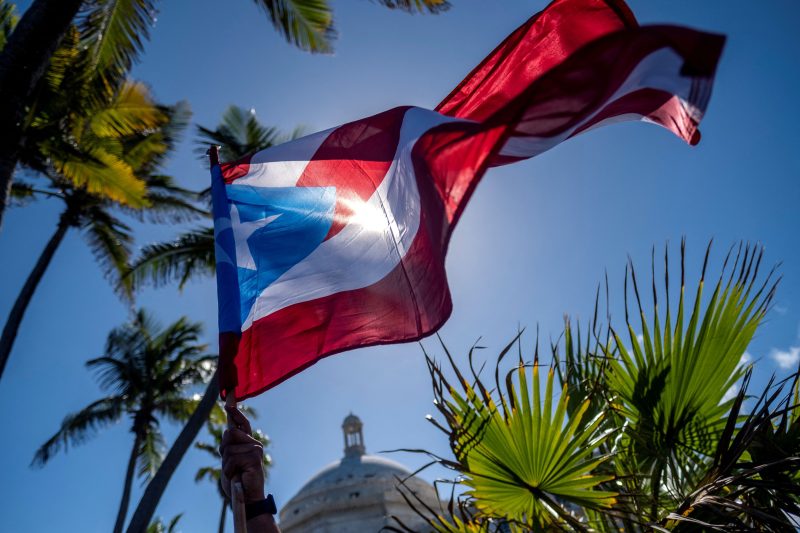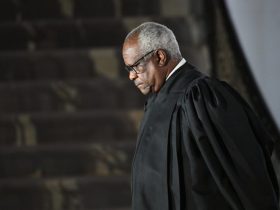The House on Thursday passed a bill that would allow Puerto Ricans to decide their future governing status, a long-sought goal on the island territory.
The vote was 233-to-191, with 16 Republicans breaking ranks and joining Democrats in backing the measure.
The legislation would authorize a vote in Puerto Rico to chose whether to become a state, an independent nation, or a country “in free association with the United States.” The island has been a territory since 1898, and residents there were granted citizenship in 1917.
The White House signaled its strong support for the bill earlier Thursday, but the measure is unlikely to make it through the Senate, where 60 votes would be required for it to advance, by the end of the year. And prospects for passage in the House next year, with Republicans in control, are significantly diminished.
During House debate on the bill, proponents argued that the 3.3 million U.S. citizens in Puerto Rico deserve greater self-determination, including the option of statehood. Only Congress can decide on statehood.
“Because we are a territory we are treated as a second-class citizen,” argued Resident Commissioner Jenniffer González-Colón (R-Puerto Rico). Underscoring that point, she noted that she is a nonvoting member of the House and therefore was unable to vote on the bill.
Rep. Darren Soto (D-Fla.) said “It’s time to set our people free,” as he recalled his late grandmother, who “lived in a colonial territory as a second-class citizen in the greatest democracy in the world. What a tragedy. What an irony.”
Rep. Alexandria Ocasio-Cortez (D-N.Y.) sought to put the issue in historical context. “Today, for the first time in our nation’s history, the United States will acknowledge its role as a colonizing force and Puerto Rico’s status as an extended colony.”
Statehood for Puerto Rico has been debated for years. Residents of the island voted three times to become a state, most recently in 2020, but those votes were not binding.
Republicans countered that the bill would short-circuit a deliberative process.
Rep. Bruce Westerman (R-Ark.) said “we’ve abrogated all of our responsibilities and authority because it doesn’t come back to Congress for any kind of approval.”
Rep. Tom McClintock (R-Calif.) said the island territory has struggled for years with high debt, low employment and poor academic performance. “So, how does it benefit America to admit a state that would be the most indebted, uneducated, poorest and least employed state in the nation?” he asked.
The last time the U.S. added new states was nearly six decades ago. The U.S. purchased Alaska from Russia (for $7 million) in 1867, and annexed the islands of Hawaii in 1898. Both were admitted as states in 1959.
In a statement of administration policy earlier Thursday, the White House said the legislation would provide “a fair and binding” democratic process for Puerto Ricans to determine their status.
“For far too long, the residents of Puerto Rico — over 3 million U.S. citizens — have been deprived of the opportunity to determine their own political future and have not received the full rights and benefits of their citizenship because they reside in a U.S. territory,” the statement said. “H.R. 8393 would take a historic step towards righting this wrong by establishing a process to ascertain the will of the voters of Puerto Rico.”
Puerto Rico has for years struggled with enormous debt, which was recently restructured, and a wave of natural disasters that has left millions of people without reliable access to clean drinking water or electricity.
In a statement after the vote, House Speaker Nancy Pelosi (D-Calif.) noted the treatment of Puerto Rico by former president Donald Trump.
“For more than a century, Puerto Rico has been governed under a political system imposed by outside forces rather than established by its own people,” Pelosi said. “Denied the right to a vote in Congress or for president, Puerto Rico’s territorial status has often left it vulnerable to unequal treatment — including the previous administration’s cruel withholding of disaster aid in the wake of Hurricanes Maria and Irma.”
She said with the vote, the Democratic-led House “has proudly voted to tear down the vestiges of colonialism — honoring the dignity, equality and basic rights of more than three million American citizens.”
With slim prospects in the Senate, the House vote is likely the final word before Republicans take over in January.








